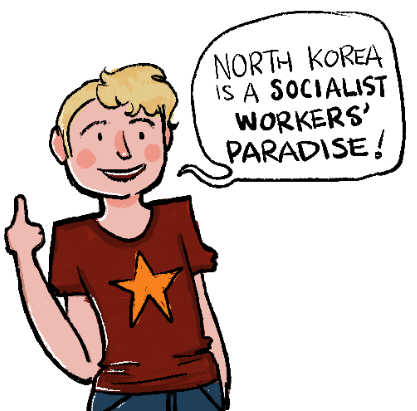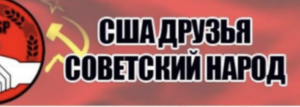If I see the expression “collective West” in English-language articles, I tune out immediately, since I know that I’m going to encounter undiluted Kremlin propaganda, either from Russians or foreign admirers of the Putin regime, including tankies, vatniks, so-called libertarians, and ultraconservatives, and it often comes alongside disparaging attitudes towards LGBTQ+ people, feminists and others who challenge the patriarchy. For some, it reflects a hostility towards liberalism—that is, non-authoritarian politics, rather than the European sense of deregulated free markets or the American sense of barely-left-of-centre views. And for others, it is merely a catch-all term for the United States, NATO, the European Union, and possibly Australia and New Zealand alongside them.
But this unity is a myth—and Russian officials and propagandists know full well that there is no singular “Western consensus.”
Here’s why.
Trumpers, Tories, and TERFs—oh my!
Russian propaganda may portray Ukraine’s supporters as libertine, decadent states devoid of conservative “family values,” but this is not in keeping with these countries’ domestic policies. We’ll use four countries as examples: the United States, Poland, Italy, and the United Kingdom. Though I’ll be sticking to four countries, we could easily substitute France, Germany, Sweden, and the Netherlands, all of which have right-wing governments or nascent far-right movements.
United States
Anyone with even a cursory knowledge of American politics knows about our extreme polarisation. The idea that this country is a free-for-all feminist and LGBTQ+ paradise is easily disproved by the spate of anti-LGBTQ+ and anti-woman bills, laws and executive orders pushed through by doctrinaire Republican legislators, Supreme Court “justices” and state governors over the past two years. Our rights may have advanced in more progressive states like California, Massachusetts, and New York, but they have regressed in red states, including Texas, Missouri, and Florida.
Russian officials will find a lot in common with governors like Greg Abbott of Texas and Ron DeSantis of Florida, all of whom have launched crusades against LGBTQ people, Black activists, and anyone else who challenges the established conservative order. And Donald Trump is back on the campaign trail, this time using culture-war issues like trans youth to keep his ultraconservative voters engaged—and ensure that he doesn’t lose support to DeSantis and other Republicans who appeal to Christian fundamentalists.
And although some “America First” Republicans (e.g. Marjorie Taylor Greene) have questioned the need to provide Kiev with more military support, the GOP-controlled House of Representatives has approved multiple military-aid packages.
Poland
Poland, one of Ukraine’s staunchest allies, is an extremely conservative Roman-Catholic-dominated country not known for its LGBTQ+ friendliness or feminist attitudes. It’s probably a hair away from Russia in this regard—the dictatorial repression may not be as extreme, but the conservative environment is still suffocating for queer Poles. The country even has “LGBT-free zones” (mostly in the south-east): something unthinkable even in the reddest of red states, at least not formally. There are liberal and progressive Poles, just there are liberal and progressive Russians and Italians, but they do not control the national government. Poland is considered one of the worst countries in the EU for LGBTQ+ people, and yet it works closely with Kiev in the anti-Putin war effort.
Italy
Italy is an unwavering supporter of Ukraine’s efforts to repel the Russian invasion. It is also led by Giorgia Meloni, who is the furthest-right Italian leader since Benito Mussolini. Her Fratelli d’Italia (Brothers of Italy) party is an outgrowth of old-school fascist movements. Far-right politicians in other countries—for example, the leaders of Germany’s AfD and the French Rassemblement National (National Rally, formerly Front National)—have balked at providing Kiev more support, but Meloni is not among them.
Although Italy is a safer place for LGBTQ+ people than Russia or Hungary, it has the fewest legal protections or rights for LGBTQ+ people in Western Europe; it lags far behind countries like Germany, France, the UK and Spain, which have all legalised same-sex marriage, allow for legal transition, include hate-crimes protection, and more.
United Kingdom
The Conservative-led British government has consistently supported Ukraine throughout the full-scale invasion, but their support for Kiev in no way suggests that the country is as liberal or progressive as Russia claims it is—unless they mean “classical liberal,” rather than “non-authoritarian” or “social libertarian.” Some of the loudest pro-Ukraine media outlets are also some of the most conservative, especially the Daily Mail and Daily Express, along with the more genteel Times and Telegraph.
Although British politicians are comparatively less hostile toward queer and trans people than their Polish, Italian, or Russian counterparts, there has been an alarming rise of homophobic and transphobic rhetoric coming from both Tory and Labour politicians, as well as the press. Some Tories, such as Suella Braverman of the Home Office and the “Equalities” minister Kemi Badenoch, are especially hostile. Boris Johnson and Liz Truss were not known for their social progressivism either. The days of David Cameron and Theresa May are long over. The UK, once listed as the most LGBTQ+-friendly country in Europe, no longer has that reputation—it has been slipping in the rankings over the past eight years.
It’s also important to remember that the UK has been the primary exporter of homophobia and transphobia. For example, the “anti-buggery” laws in African and Caribbean countries like Nigeria, Jamaica and Uganda are colonial leftovers that the locals now see as their traditional values. Before “muscular Christianity” arrived on the African continent, many cultures, such as the Igbo of what is now Nigeria, had more fluid views of gender.
Why the “collective West” charge is disingenuous
The Russians’ condemnation of the “collective West” has nothing to do with the political composition of NATO or EU states. It doesn’t have jack shit to do with LGBTQ+ rights or “moral decay.” It is just an excuse to legitimise its attempts to annex the entirety of Ukraine to the Russian state. No self-respecting leftist should use the “collective West” narrative; it’s merely self-serving Kremlin waffle.
In fact, American evangelicals have worked with Russian Orthodox fundamentalists to persecute queer and trans Russians. The media has covered Russia’s exploitation of our internal tensions for its own geostrategic interests—for example, the “Heart of Texas” and “Black Matters” Facebook groups that popped up during the 2016 election.
There is no such thing as the collective West—only countries that aren’t lining up to do Russia’s bidding.


